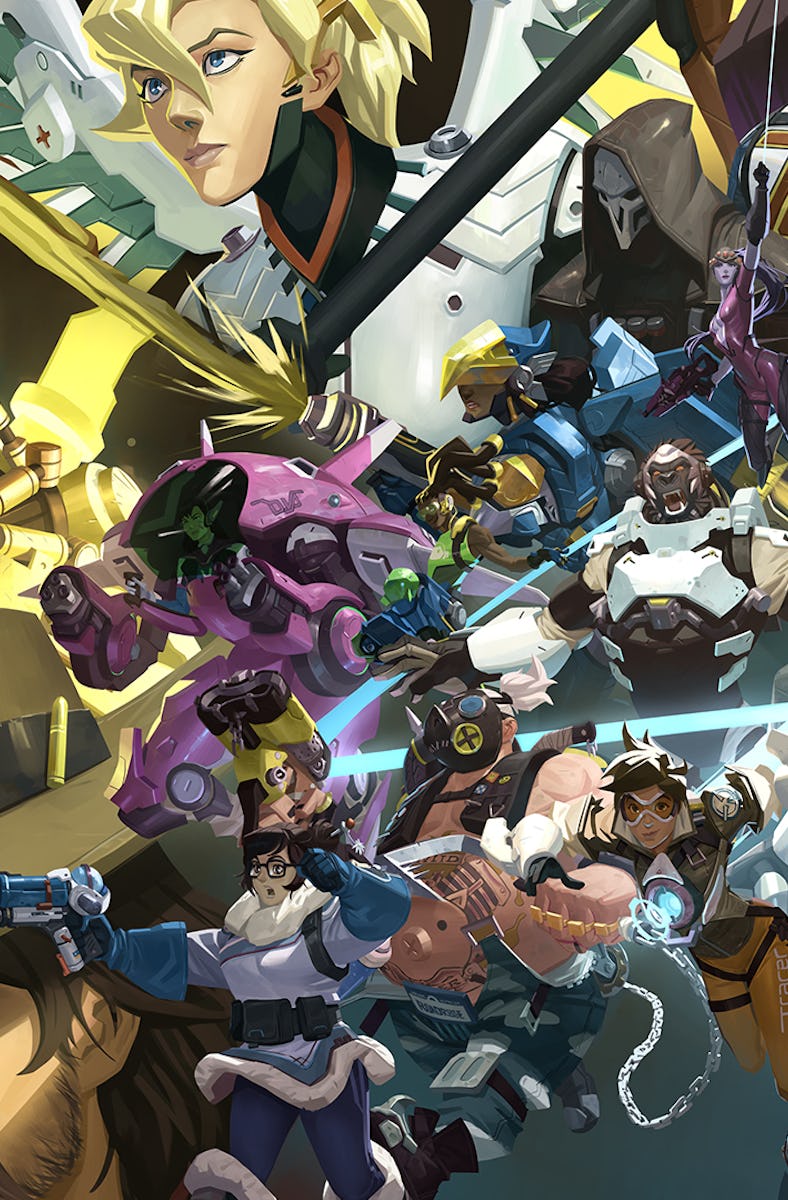How often does nostalgia tug us back to the many games we have a soft spot for from our past? For me, it can range from modern classics to decidedly bad games that I will go to bat for. There is something comforting about a return to special experiences if only to try and recapture the original memory. One game that I can’t do that with is Overwatch, the game-changing FPS/MOBA from Blizzard. Seven years after its release on May 24, 2016, you can’t even play the original. Even with plenty of clones and an official sequel, there is nothing like the original — and there never will be.
I was introduced to Overwatch at the same time as the rest of the world. I watched Blizzcon 2014 from my computer in anticipation of the new announcements. When the cinematic trailer for a mysterious game with a Pixar aesthetic and stylish cast of characters aired, I fell hard. I bought Overwatch on launch day two years later.
Overwatch hit the ground running upon its release. A stunning combination of competitive FPS gameplay with nuanced, hero-centric combat inspired by MOBAs. I had never been a fan of either genre, but some magic to the Overwatch alchemy had me hooked. I confess that a lot of my motivation came from a desire to play as Mercy and get all the pretty skins for her (which to this day is the only reason I dip my toes into Overwatch 2).
Blizzard made a gripping hybrid that appealed to a wide audience and drew in so many players that, like myself, typically wouldn’t even consider a game like this. Competitive gamers were hooked by the tightly designed and balanced gameplay that prioritized team composition and cooperation as well as an individual understanding of each hero and their toolkit. Casual players were hooked by the stunning art and character design as well as a low barrier to entry. It was an easy game to pick up and play but a hard game to master, making everybody happy in the process.
Over time, subsequent years brought new game modes and special holiday events like Junkenstein’s Revenge, along with new maps, heroes, and balancing changes to keep things feeling fresh. Even if you got tired of playing your main, you could always switch to another character of the same role — or pivot entirely to a totally different archetype. It almost never got old.
But the good times couldn’t last forever.
A divide emerged and widened between competitive and casual players, forcing Blizzard to navigate a very tricky landscape: what to prioritize when it came to balancing and bug fixes. Both sides felt like the other was getting priority, though Blizzard’s investment in the Overwatch League lead the game to skew competitive, putting strain on the enjoyment of the casuals.
Yet even when I wasn’t an active Overwatch player, the world of the game kept me hooked. I would eat up every animated short or comic Blizzard released with these fascinating characters, and every tidbit that expanded on the lore of Overwatch was borderline delicious. Not to mention reading a hefty amount of fanfic, of which the community made sure there was plenty to choose from.
Overwatch 2 lives in the shadow of its predecessor.
During this time two things happened that would lead Overwatch to speed towards its eventual end. The first was imitation. Because Overwatch was so successful for a time, other developers and publishers wanted to get in on that profit. More FPS/MOBA games started popping up to compete. Many would not last, like Gearbox’s Battleborne. While others, like Riot Games’ Valorant, offered a slightly new take on the Overwatch concept of a hero-based shooter that satisfied fans. Even Respawn’s Apex Legends feels a tad imitative, combining hero-based first-person shooter gameplay with the battle royale formula popularized by Fortnite.
Blizzard itself sought to replace Overwatch with an official sequel, Overwatch 2, announced in 2019. The community was immediately concerned about what a sequel meant for Overwatch. Blizzard originally promised that Overwatch would not shut down with the release of Overwatch 2. Sadly, a month before Overwatch 2’s release, Blizzard confirmed that Overwatch servers would shut down on October 2, 2022 — two days before the release of Overwatch 2.
The official sequel has had a rocky life in the months since its release. Shake-ups to competitive play, a less-friendly beginner's experience, and fundamental changes like the switch to 5v5 matches have left Blizzard constantly fixing problems while developing seasonal content. Most recently a promised story mode for the game was canceled, yet there’s still some measure of PvE experiences on the horizon.
Overwatch 2 is not the same game that I originally fell in love with in 2016. There is no game like that because Overwatch is gone. All that’s left are the memories of a better game.
